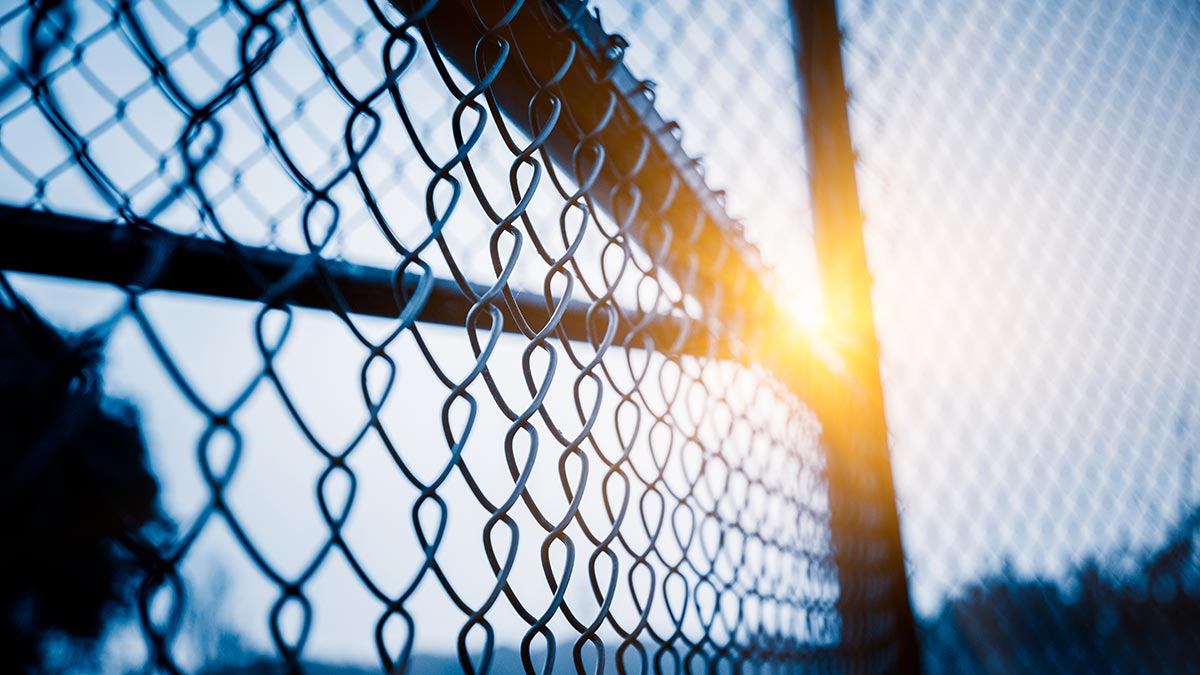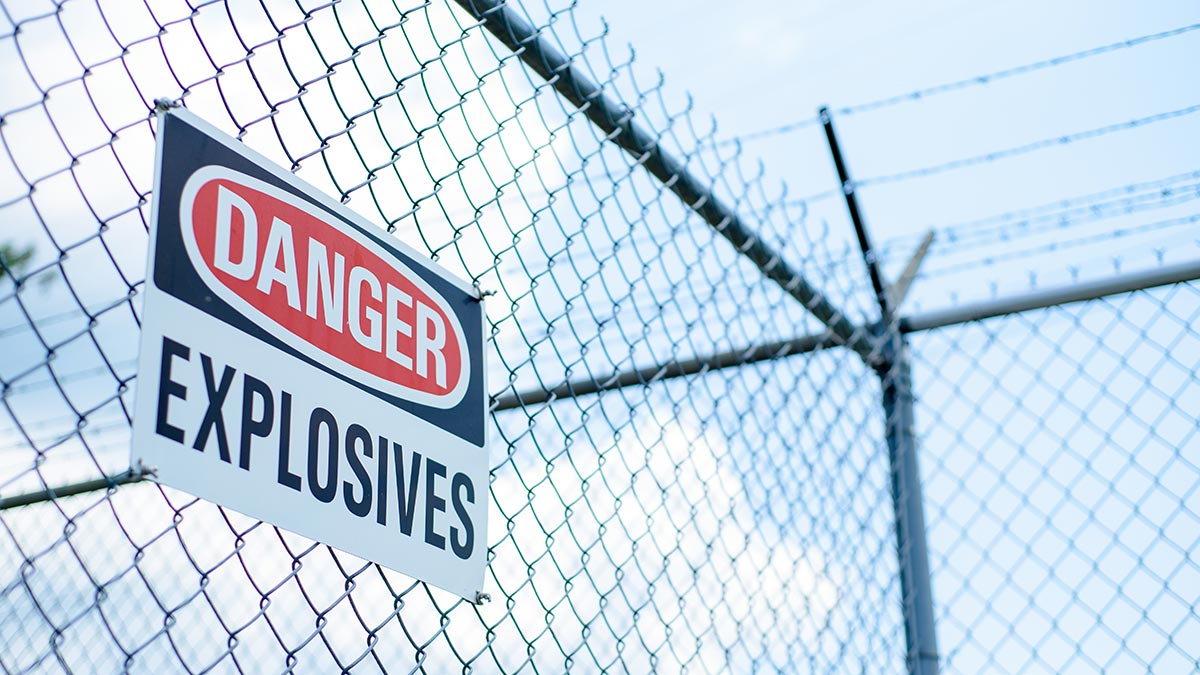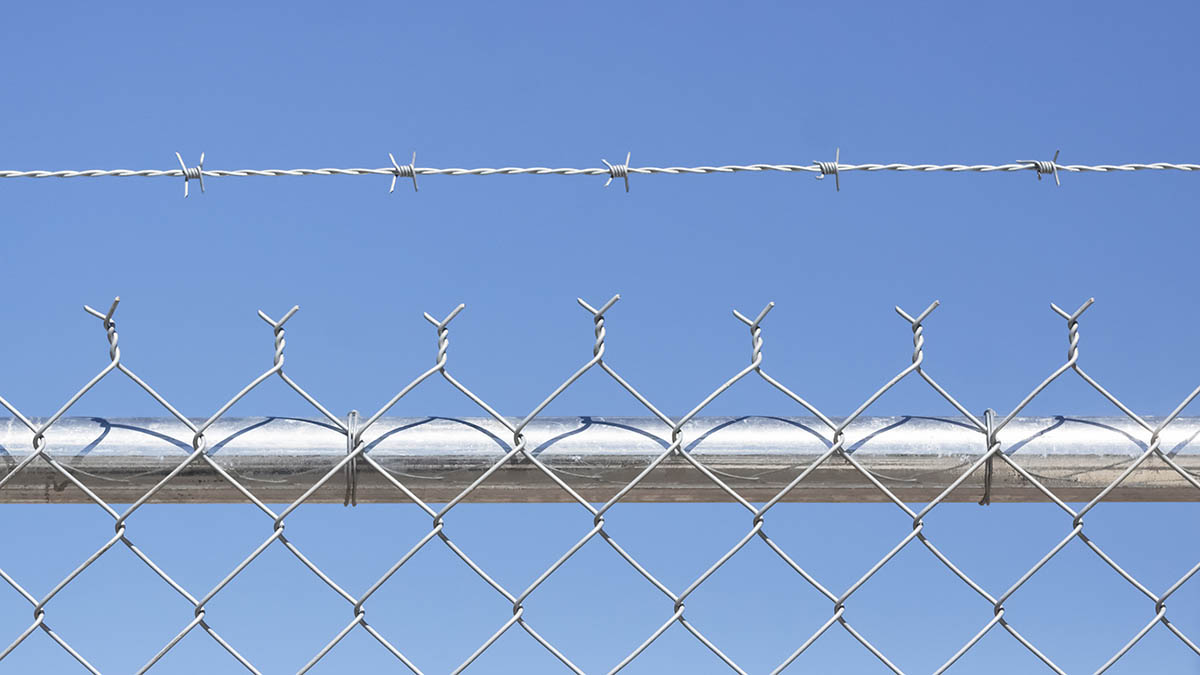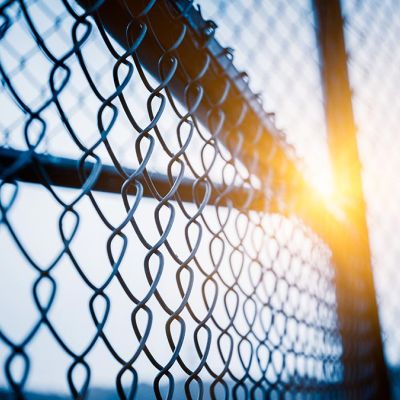WANT A GREAT DEAL?
Add products & we'll be in touch soon!


Everything You Need to Know about Chain Link Fencing
Galvanised wires are often used for the chainlink fencing in order to avoid or reduce corrosion. Steel wires coated with linear low-density polyethylene (LLDPE) are also common materials for the manufacturing of these fences.
Due to the way the wires are arranged, chain-link fences are also referred to as wire nettings, wire-mesh fences, diamond-mesh fences and chainmesh fences. Furthermore, they are also called hurricane or cyclone fences because wind and rain can simply pass through this fence without damaging the structure.
Installation of the Chain Link Fence
In order to set up chain-link security fencing around a property, posts will have to be installed first so that the wire fence can be attached. These posts can be concrete, steel tubing, or timber, and will have to be planted into the ground for stability.
The steps to installing a basic wire fence include:
- The terminal posts, such as the gate posts, as well as those on the end and corners of the fence, should be anchored or set on concrete footing to prevent leaning or falling under the tension of the stretched wire fence.
- Place the line posts, which refer to the posts installed in between the terminal posts, in intervals of no more than three metres.
- The chainlink fence is then attached to one of the terminal posts (or on one end if the fence is installed in one line) and stretched to be attached to the next terminal post (or the other end of a one-sided fence). The excess wire fence is then cut and removed, and the wire is unravelled to wrap the ends around the posts.
- The chain link fencing is then secured to the line posts by tying it with aluminium wire.
There are some basic variations to the installation of the wire fence, and some of these extra steps include the following:
The in-and-out movements that occur below the wire fence in between posts can cause damage to the structure. And thus, a tension wire is often stretched in the bottom from one terminal post to another to secure the wire fence. This bottom tension wire is also called a coil wire. Generally, this tension wire is installed and secured to the line posts prior to the attachment of the wire-mesh fence, which is then secured to the tension wire usually with the use of hog rings.
Depending on the situation, bottom horizontal rails are used instead of stretched tension wires for more durability and stability especially for security fencing.
Tension wires or rails can also be installed on top of the wire-mesh fence, with top rails being commonly used. This may not be necessary, but it depends on the scenario.
For fences that are more than three metres tall, intermediate rails (or middle rails) are generally installed to ensure greater stability.
Common Applications of Chain Link Fencing

Chainlink fences have a variety of uses for residential, commercial, and industrial purposes. It is also affordable and functional. Despite its ease of installation, this versatile fence can provide a high level of security. Below are the common applications of chain-link fencing:
Establishing boundaries
A chain-link fence can define the boundaries of your property and still ensure your security without blocking your view to the area outside unlike solid, private fences. Especially with fencing around farms, a chain-link fence is a great perimeter marker that ensures safety.
Ensuring security
Because they're affordable and easy to install, chain-link fences are cost-effective solutions for providing security in many properties whether it's residential, commercial or industrial. You can further boost the security effectiveness of these wire-mesh fences further in many ways such as adding barbed wires on top to deter climbing. You can also use vines, vinyl slats and other materials if you want more privacy in your property.
Keeping people and animals in
Chain-link fences are perfect for ensuring the safety and security of your children and pets while giving them the freedom to roam around inside your property. Just make sure to secure the bottom part of the fence with the appropriate bottom rails or tension wire to prevent anyone, or anything, from crawling under the fence.
Keeping unwanted people/animals out
On the other hand, installing chain-link fences is a cost-effective way of ensuring that no unwanted people, or wild or stray animals enter your premises and damage your property. Since you can see through these wire fences, you can easily identify who or what is intruding your property from the other side of the fence.
Serving as a first line of defence for high-security facilities
The chain-link fences are often used in high-security facilities like laboratories, prisons and military bases for outsiders to know that the area is not for unauthorised access. Even if these people attempt to cut through or climb the wire fences, it gives the security personnel to have more time to take action.
Various applications in sports fields and/or playgrounds
In sports fields such as those for baseball, football and tennis, chain-link fences are used to prevent balls from going out of the perimeter. This is also the reason for installing chain-link fences around children's playgrounds where balls and other toys can roll out onto the roads and cause fatal accidents. On the other hand, the fence allows spectators to watch sports games from outside the playing field while being safe from any rogue flying balls.
Wire Differences in Chain-Link Fences

There are different types of wires to consider when it comes to chainlink fencing. The most popular among these types are the heavy galvanised wires. These steel wires are coated by hot-dipping them into protective and rust-repellent metals at extremely high temperatures of around 450°C. This chemical process is called galvanisation, and for most products, zinc is used as the coating metal.
Galvanised Wires
Chain-link fences with galvanised wire are ideally used in areas where the environment requires a heavy-duty material that can withstand extreme elements. Regular hot-dip galvanised wires with 2.5mm diameter are used in most chain-link fences while heavy galvanised wires with 3.15mm diameter are used for commercial fencing.
Vinyl-Coated Wires
Wires can also be coated with a black or green polyvinyl chloride (PVC) or vinyl, which is intended to further prolong the life of the fence by having an extra coating around the galvanised wire against rust and corrosion. The vinyl-coated wire is a better option when your property is around or near coastal areas. The salty air can break down the zinc coating in galvanised wires more quickly than usual, and thus, causing your fence to rust. The vinyl coating can protect the galvanised wires, ensuring your fences will last a long time.
When it comes to costs, the galvanised chain link meshes are the more affordable. If you are located near the sea or in areas with a similar environment, the extra life that the vinyl-coated fencing mesh can provide will be worth the extra cost you pay for.
Green PVC Wires
Vinyl-coated chain-link fences come in black and green, as well as in many other colours. The ultimate choice will generally depend on your personal preferences. In essence, people choose green vinyl chain-link so that the fence will blend into the background, especially in gardens and grass lawns.
Black PVC Wires
On the other hand, some people use black chain-link mesh to create a bold statement, as it creates a stark profile against gardens and lawns. Furthermore, when used with black metal rails and posts, the black PVC chain-link fences can look like wrought iron structures from afar, and thus, giving your property a high-end appeal. However, some people also use black PVC fence mesh to create a "transparent" fence depending on the background or the landscape.
Chain-Link Fence for Privacy Purposes
One common misconception of opting for a chain-link fence is that it's "obviously" not for privacy purposes because of the holes. When in fact, there are various ways to add privacy with this wire fence.
- Attaching privacy fence screens. They are designed to withstand weather elements and can be easily secured;
- Inserting slats: They can be intertwined horizontally or vertically through the wire mesh to help reduce visibility from outsiders;
- Growing vines for a natural look: Depending on the plants you use, vines on chain-link fences can completely or partially provide privacy;
- Using greenery panels: You can use these garden decors if you prefer an eco-friendly but maintenance-free and easy-to-control privacy cover.
To learn more about your options on construction materials, rural fencing, and security fencing, contact us here at Direct Trades Supply. We have been providing support and building partnerships with tradies, mining companies, civil engineers and farmers in Western Australia for more than 20 years.
Popular Articles

Company
123 Kelvin Road
Maddington WA 6109
P: 1300 123 387 (DTS)
E: [email protected]
Opening Hours
6:30 AM - 5:00 PM Mon-Fri
7:30 AM - 12:00 PM Sat
Closed Public Holidays












